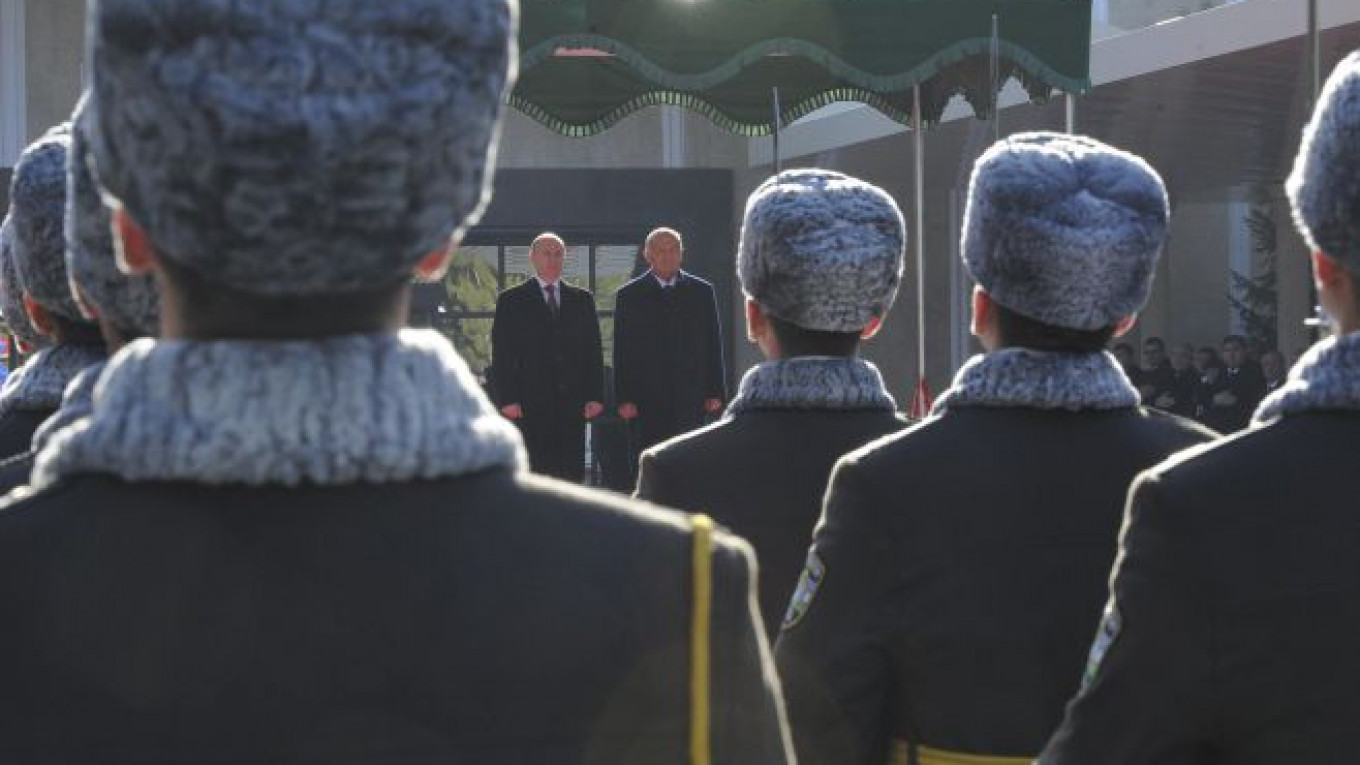Uzbekistan urged Russia on Wednesday to help protect Central Asia against what it said would be a rising threat from militant Islam as U.S. forces draw down their numbers in Afghanistan.
President Islam Karimov said Central Asia, a resource-rich and mainly Muslim region nestled between Russia, China and Afghanistan, could face a fate similar to that of Iraq, swathes of which have been taken over by Islamic State insurgents.
"Various elements among the representatives of Islamic State are already slipping into Afghanistan from Iraq and Syria. All this requires the adoption of appropriate preventative measures," Karimov said, without elaborating, at a news briefing with visiting Russian President Vladimir Putin alongside.
"The creeping expansion of militant extremism and religious radicalism, not only on the territory of the governments of Central Asia but also abroad, is most seriously concerning," Karimov said. "Russia's presence in Central Asia is undoubtedly an important factor to support peace and security."
Putin said Russia, which has a large number of immigrants from fellow ex-Soviet republics in Central Asia, shared Uzbek concerns over NATO's looming pullout from Afghanistan, given its own conflict with Islamist militants in the North Caucasus.
Putin's visit was a show of support for Karimov at a time when Russia is increasingly worried about regional security. Russian officials said Moscow also planned to forgive $865 million in Uzbek debt.
Karimov, whose government has been accused of torturing political prisoners, has repeatedly justified his tough methods by saying he wants to prevent militant Islamism from gaining a foothold in Uzbekistan. The government has denied the torture accusations.
Uzbekistan, like other Central Asian states, has played its Soviet-era master Moscow off against the growing influence of China as well as that of the United States, which aims to draw down its troops in Afghanistan after more than a decade.
However, about12,000 international troops are to remain at least into next year to train and support Afghan security forces facing a resilient Islamist Taliban insurgency.
The United States leased an air force base in Uzbekistan to help in military operations in Afghanistan after the Sept. 11, 2001, attacks. But the base was closed to U.S. forces after Washington criticized Tashkent's human rights record.
Karimov, 76, has ruled Central Asia's most populous nation of 30 million people with an iron hand for more than two decades and is widely expected to seek re-election in March.
A Message from The Moscow Times:
Dear readers,
We are facing unprecedented challenges. Russia's Prosecutor General's Office has designated The Moscow Times as an "undesirable" organization, criminalizing our work and putting our staff at risk of prosecution. This follows our earlier unjust labeling as a "foreign agent."
These actions are direct attempts to silence independent journalism in Russia. The authorities claim our work "discredits the decisions of the Russian leadership." We see things differently: we strive to provide accurate, unbiased reporting on Russia.
We, the journalists of The Moscow Times, refuse to be silenced. But to continue our work, we need your help.
Your support, no matter how small, makes a world of difference. If you can, please support us monthly starting from just $2. It's quick to set up, and every contribution makes a significant impact.
By supporting The Moscow Times, you're defending open, independent journalism in the face of repression. Thank you for standing with us.
Remind me later.


